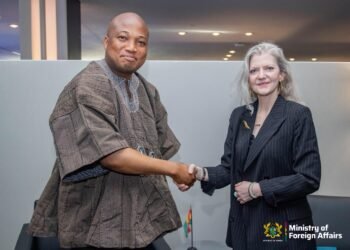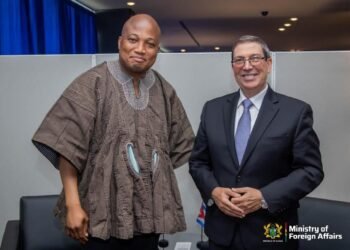The Institute of Economic Affairs (IEA) has urged the Monetary Policy Committee (MPC) of the Bank of Ghana (BoG) to leave its policy rate unchanged after completing its 104th review of the economy that is currently underway.
According to the Economic Policy Think Tank, the 1 percent increment in the rate in November 2021 is yet to fully impact on the economy, as such, the rate must be left unchanged for a while.
“Recalling that the MPC increased the Policy Rate by 100 basis points just two months ago at its November meeting, the likelihood of another follow-up increase may be low since the last hike needs time to work itself through the system.
“Also, importantly, such a decision would appear to be counter to what the Committee has touted as a successful enduring process of disinflation and the lowering of interest rates in recent times. Given these contending issues, our expectation is that the MPC will try and play it safe by holding the Policy Rate at its current level of 14.5%”.
Dr. John Kwakye
Director of Research at the IEA, Dr. John Kwakye, believes keeping the policy rate at the current 14.5 percent, “should allow the Committee to buy a little bit of time until its next meeting in March 2021 when a few more inflation readings would have made the situation clearer on how to position the Policy Rate”.
Reducing cost of borrowing
In a roundtable discussion organized by the IEA on ‘Making Monetary Policy in Ghana More Fit-For-Purpose’, Dr. John Kwakye urged the Bank of Ghana, Government as well as commercial banks to play their roles effectively to bring down the cost of borrowing in the country.
Highlighting the specific roles of these stakeholders in bringing down the cost of borrowing, the Director of Research at the IEA stated that the Central Bank should find a more effective way of controlling inflation using its monetary policy instruments.
“BoG has a duty in ensuring a more effective way of controlling inflation so that monetary policy itself does not fuel lending rates. BoG must strengthen safety nets for borrowers, including through identification and credit worthiness schemes. BoG must ensure strong oversight of the banking industry to engender efficiency and high standard of operation and to prevent collusive and ‘customer capture’ practices that tend to sustain high lending rates and other financial charges”.
Dr. John Kwakye
The economic policy think tank also advised the government to restrain its borrowing to reduce pressure on lending rates.
“Meanwhile, government must restrain its borrowing to reduce pressure on lending rates by addressing the budget deficit bias. Government must also ensure that banks’ taxes are not out of proportion or inordinate so that they do not overly overburden them and thereby fuel lending rates”.
Dr. John Kwakye
Role of the Banks
Dr. John Kwakye further urged the banks and other financial institutions to reduce their cost of operations and improve operational efficiency so as to prevent these costs from feeding into their lending rates.
“Banks, on the other hand, must improve their operational efficiency and reduce their costs to a minimum, including through modernization of their processes and systems and through strategic company focus and foresight planning, so that these do not feed into lending rates”.
Dr. John Kwakye
Dr. John Kwakye intimated that lending rates have been out of control in Ghana for years. This, according to him, is as a result of a multiplicity of factors, including persistent inflation, high cost of monetary policy, banks’ inefficiencies and high operational costs, high borrower risks, government incessant borrowing, as well as high bank taxes.
Dr. John Kwakye highlighted that the high lending rates in the country is negatively affecting investment of firms and the country’s output as a whole. He stressed that “the persistence of high lending rates has had negative effect on investment, growth and employment”.
However, given the multiplicity of causes, he emphasized that “monetary policy alone cannot resolve the problem. The solution must come from multiple relevant fronts”.
READ ALSO: Rice farmers Cry for Help as They Struggle to Get Buyers



















